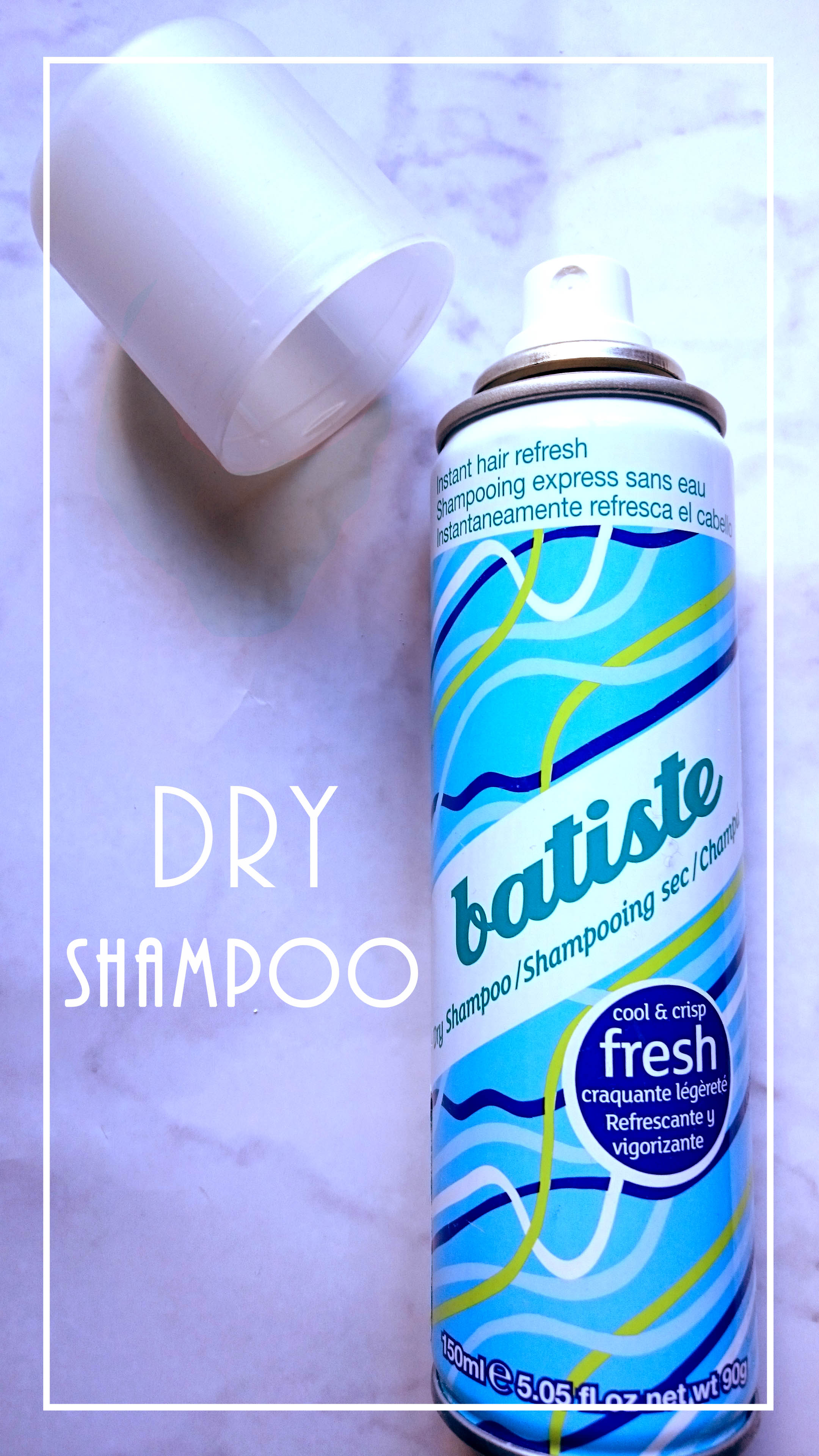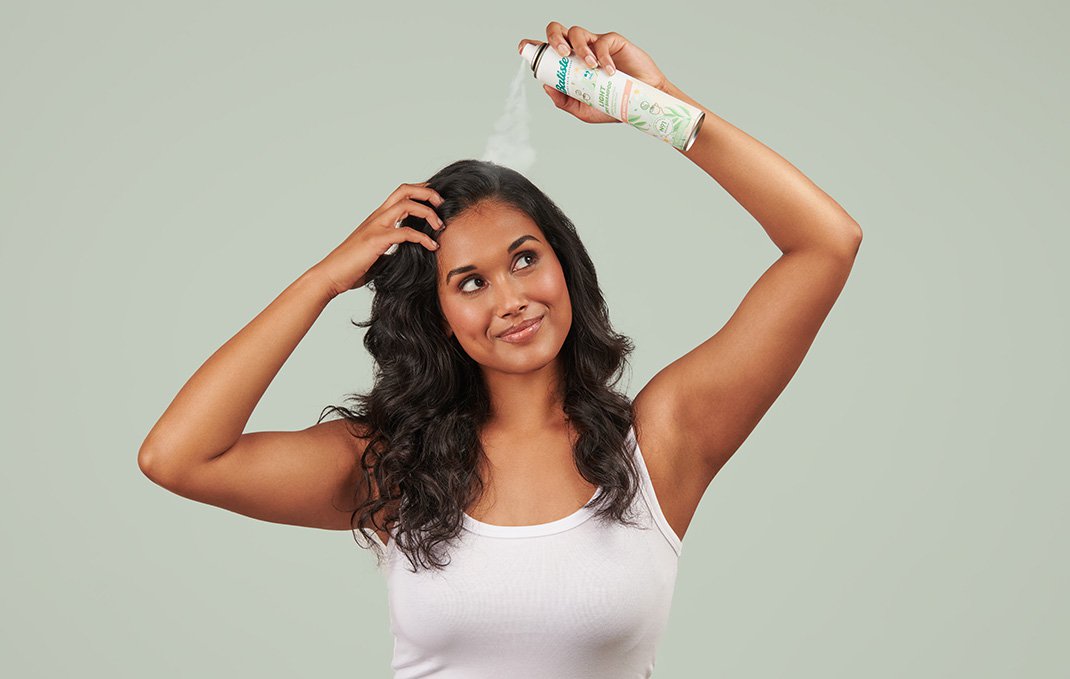Are you tired of relying on dry shampoo as your go-to hair solution? While dry shampoo can be a lifesaver for quick fixes, it’s not always the best option for maintaining healthy hair. If you're wondering what to use in place of dry shampoo, you're in the right place. This article will explore alternatives that can keep your hair fresh, clean, and vibrant without the drawbacks of traditional dry shampoo.
Dry shampoo has become a staple in many people's hair care routines, but it's not without its downsides. Overuse can lead to scalp buildup, irritation, and even damage to your hair's natural texture. That's why exploring other options is crucial for maintaining healthy hair in the long run.
In this guide, we’ll cover everything from natural substitutes to professional alternatives, ensuring you have all the information you need to make an informed decision. Let’s dive in and discover what works best for your hair type and lifestyle.
Read also:Why Siliconebased Primers Are A Drugstore Gamechanger For Flawless Makeup
Table of Contents
- Biography of Dry Shampoo
- Why Replace Dry Shampoo?
- Natural Alternatives to Dry Shampoo
- Professional Products as Alternatives
- DIY Methods to Refresh Hair
- Benefits of Using Alternatives
- Best Alternatives for Different Hair Types
- Environmental Impact of Dry Shampoo Alternatives
- Cost Analysis: Dry Shampoo vs. Alternatives
- Expert Recommendations
- Conclusion and Final Thoughts
Biography of Dry Shampoo
Before we delve into alternatives, let’s take a moment to understand the history and purpose of dry shampoo. Dry shampoo was first introduced in the 1940s as a convenient solution for people who couldn’t wash their hair frequently. Over the decades, it has evolved into a must-have product for busy individuals looking to extend their blowouts.
However, with the rise of awareness about scalp health and environmental sustainability, many are reconsidering their reliance on dry shampoo. This section will explore the origins, benefits, and drawbacks of dry shampoo, setting the stage for exploring better alternatives.
For a quick overview, here’s a table summarizing key facts about dry shampoo:
| Fact | Detail |
|---|---|
| Invention Year | 1940s |
| Primary Purpose | To absorb oil and refresh hair |
| Common Ingredients | Cornstarch, talc, silica |
| Potential Drawbacks | Scalp buildup, irritation |
Why Replace Dry Shampoo?
While dry shampoo offers convenience, its overuse can lead to several issues. The buildup of powder on the scalp can clog hair follicles, leading to irritation and even dandruff. Additionally, many dry shampoos contain synthetic fragrances and chemicals that may not be suitable for sensitive scalps.
Replacing dry shampoo with healthier alternatives can improve scalp health, reduce irritation, and promote hair growth. By exploring substitutes, you can maintain fresh-looking hair without compromising your hair's natural texture and health.
Natural Alternatives to Dry Shampoo
Nature provides us with a variety of safe and effective alternatives to dry shampoo. These natural options are gentle on the scalp and can be used with confidence. Below are some of the best natural substitutes:
Read also:Unveiling The Secrets Of Mane Straighteners Your Ultimate Guide
Baking Soda
Baking soda is a versatile household item that can work wonders for your hair. It absorbs excess oil and helps cleanse the scalp without harsh chemicals.
- How to Use: Sprinkle a small amount of baking soda onto your roots and massage gently. Leave it on for a few minutes before brushing it out.
- Benefits: Removes oil buildup, refreshes hair, and promotes a healthy scalp.
Cornstarch
Cornstarch is another effective natural alternative. It absorbs oil and leaves hair looking clean and voluminous.
- How to Use: Apply cornstarch directly to your roots or mix it with a small amount of water to create a paste. Massage into your scalp and brush out after a few minutes.
- Benefits: Gentle on the scalp, absorbs oil, and adds volume.
Professional Products as Alternatives
If you prefer store-bought solutions, there are many professional products designed to replace dry shampoo. These products are formulated with natural ingredients and are often free of harsh chemicals.
Some popular options include:
- Moisturizing hair sprays
- Texturizing powders
- Scalp-cleansing solutions
Look for products labeled as "natural" or "sulfate-free" to ensure they are gentle on your hair and scalp.
DIY Methods to Refresh Hair
For those who enjoy crafting their own hair care solutions, DIY methods can be both fun and effective. Here are a few ideas to refresh your hair without dry shampoo:
- Make a herbal rinse using chamomile or rosemary tea to cleanse and condition your hair.
- Create a scalp scrub with sugar and coconut oil to exfoliate and refresh your scalp.
- Use apple cider vinegar as a natural clarifying agent to remove buildup and restore shine.
These DIY solutions not only save money but also allow you to customize your hair care routine to suit your needs.
Benefits of Using Alternatives
Switching from dry shampoo to alternative solutions offers numerous benefits:
- Improved scalp health
- Reduced irritation and dandruff
- Promotion of natural hair texture
- Environmental sustainability
By choosing alternatives, you can enhance your overall hair care routine while minimizing the use of harsh chemicals.
Best Alternatives for Different Hair Types
Different hair types require different care. Here’s a breakdown of the best alternatives for various hair types:
- For fine hair: Use cornstarch or texturizing powders to add volume and absorb oil.
- For curly hair: Opt for moisturizing sprays or herbal rinses to keep hair hydrated and refreshed.
- For oily hair: Baking soda or apple cider vinegar can help control oil production and cleanse the scalp.
Tailoring your approach to your specific hair type ensures optimal results.
Environmental Impact of Dry Shampoo Alternatives
Many dry shampoos contain ingredients that are harmful to the environment. By choosing natural or professional alternatives, you can reduce your carbon footprint and support sustainable practices.
For example, using baking soda or cornstarch eliminates the need for single-use plastic packaging, while herbal rinses and DIY solutions utilize biodegradable ingredients.
Cost Analysis: Dry Shampoo vs. Alternatives
When comparing the cost of dry shampoo to its alternatives, the latter often proves to be more economical in the long run. While store-bought dry shampoos may seem affordable initially, their frequent use can add up over time.
In contrast, natural alternatives like baking soda and cornstarch are inexpensive and long-lasting. DIY solutions also save money by utilizing household items you already have.
Expert Recommendations
According to hair care experts, the key to replacing dry shampoo lies in finding a solution that suits your individual needs. Dr. Jane Smith, a renowned dermatologist, advises:
"Focus on maintaining a healthy scalp by using gentle, natural products. Avoid over-reliance on any single product and experiment with different alternatives to see what works best for you."
For professional recommendations, consult a hairstylist or dermatologist to determine the best course of action for your hair type.
Conclusion and Final Thoughts
In conclusion, replacing dry shampoo with natural or professional alternatives can significantly improve your hair and scalp health. By exploring options like baking soda, cornstarch, and DIY solutions, you can maintain fresh, clean hair without compromising your well-being or the environment.
We invite you to share your thoughts and experiences in the comments below. Have you tried any of these alternatives? What worked best for you? Don't forget to explore other articles on our site for more hair care tips and tricks.


